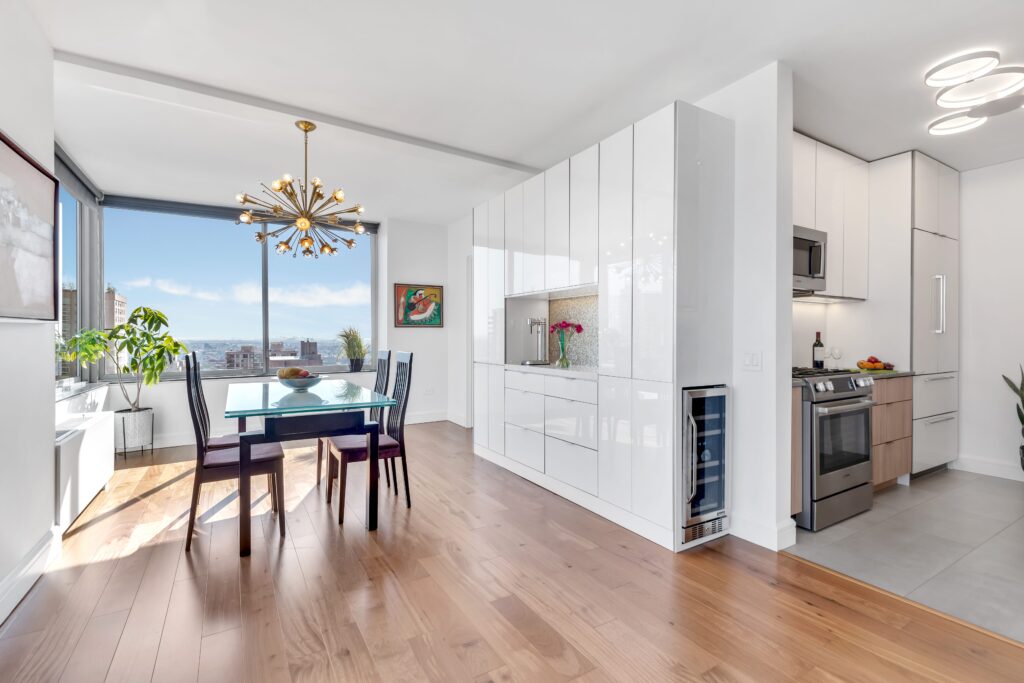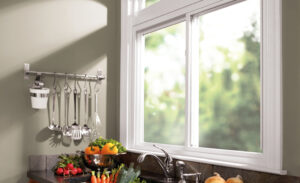When Sarah and Michael bought their 1960s suburban house, they knew it needed some love. The outdated kitchen with its avocado-green cabinets, the cramped bathroom, and the worn-out floors screamed for a makeover. But a simple kitchen remodel soon turned into a full-scale renovation project. As they tore down walls and installed new fixtures, Sarah and Michael realized that they weren’t just updating their house but creating a home that reflected their style and needs. And, as they discovered, they were also making a smart investment in their property’s future value.
Understanding the Benefits of Home Renovation
Home renovation is more than just a cosmetic upgrade; it’s an investment that can significantly enhance a property’s value, functionality, and comfort. Renovations allow homeowners to modernize outdated features, improve energy efficiency, and customize spaces to suit their lifestyles. According to the Joint Center for Housing Studies of Harvard University, home renovation spending in the United States reached a record $433 billion in 2022, reflecting a growing trend among homeowners to invest in their properties rather than move to new ones.
Popular Home Renovation Trends
Several renovation trends have gained popularity in recent years, driven by changing homeowner preferences, technological advancements, and a growing emphasis on sustainability. Here are some of the most notable trends:
- Open-Concept Living Spaces: One of the most popular trends in home renovation is creating open-concept living spaces. Knocking down walls to merge the kitchen, dining, and living areas creates a more spacious and airy environment, perfect for family gatherings and entertaining. A survey by Houzz found that 45% of homeowners who renovated in 2023 opted for an open floor plan.
- Kitchen and Bathroom Upgrades: Kitchens and bathrooms are among the most renovated rooms, as they are considered high-impact areas that can significantly boost a home’s appeal and resale value. According to the National Association of Realtors (NAR), a minor kitchen remodel can offer a return on investment (ROI) of up to 81%, while a bathroom remodel provides an average ROI of 70%.
- Energy Efficiency and Sustainability: With increasing awareness about climate change and rising energy costs, many homeowners are prioritizing eco-friendly renovations. Installing energy-efficient windows, adding insulation, and incorporating smart home technology are popular choices. The U.S. Department of Energy reports that energy-efficient renovations can reduce utility bills by up to 30%.
- Outdoor Living Spaces: Expanding outdoor living spaces with decks, patios, and landscaped gardens have become increasingly popular, especially after the COVID-19 pandemic, which highlighted the importance of having comfortable outdoor areas. The American Institute of Architects (AIA) reported a 60% increase in requests for outdoor living space renovations in 2023.
- Home Offices: The rise of remote work has made home offices an essential feature for many homeowners. Adding or upgrading a home office can make a house more functional and appealing to prospective buyers. According to a survey by Zillow, homes with a dedicated office space sell for 10% more than comparable homes without one.
Costs of Home Renovation
The cost of home renovation can vary widely depending on the project’s scope, location, materials, and labor costs. However, some general cost estimates can help homeowners budget for their projects:
- Kitchen Remodel: The average cost of a kitchen remodel ranges from $25,000 to $50,000, depending on the extent of the work. High-end remodels can exceed $100,000. According to Remodeling Magazine, a minor kitchen remodel offers an average ROI of 81%, while a major kitchen remodel offers an ROI of around 54%.
- Bathroom Remodel: A bathroom renovation typically costs between $10,000 and $25,000, with high-end remodels costing upwards of $50,000. A mid-range bathroom remodel has an average ROI of 70%, as reported by the National Association of the Remodeling Industry (NARI).
- Basement Renovation: Renovating a basement into a livable space can cost between $20,000 and $75,000. This can include creating a guest suite, home theater, or gym. The ROI for a basement remodel is approximately 70%, according to HomeAdvisor.
- Roof Replacement: Replacing an old roof is a significant investment, typically costing between $5,000 and $15,000. However, it offers a high ROI of around 60%, especially in regions with harsh weather conditions.
- Outdoor Renovations: Building a deck or patio can cost anywhere from $5,000 to $20,000, depending on the materials used and the space size. Landscaping costs vary widely, but a well-designed garden can significantly increase a home’s curb appeal and overall value.
Financing Home Renovations
Funding a home renovation project can be a challenge, but several financing options are available to homeowners:
- Home Equity Loans and Lines of Credit (HELOCs): These options allow homeowners to borrow against the equity in their home, often at lower interest rates than personal loans or credit cards. According to the Federal Reserve, HELOCs remain popular for funding larger renovation projects.
- Personal Loans: Unsecured personal loans can be used for smaller renovation projects. These loans often have higher interest rates than home equity loans but do not require using the home as collateral.
- Cash-Out Refinancing: This involves refinancing an existing mortgage for more than the amount owed and using the extra cash for renovations. While this can be an effective way to access funds, it requires careful consideration of long-term financial implications.
- Government Programs: In some countries, government grants and loans are available for energy-efficient renovations. In the U.S., for example, the Federal Housing Administration (FHA) offers the 203(k) loan program to help homeowners finance renovations.
Planning and Managing a Successful Renovation
A successful renovation requires careful planning, budgeting, and management. Here are some essential steps to consider:
- Define Your Goals and Budget: Determine what you want to achieve with your renovation and set a realistic budget. Consider not only the cost of materials and labor but also contingencies for unexpected expenses.
- Hire Reputable Contractors: A good contractor can make or break a renovation project. Look for licensed, insured professionals with a strong track record and positive reviews. The Better Business Bureau (BBB) is an excellent resource for finding reputable contractors.
- Obtain Necessary Permits: Many renovations require permits, especially for structural changes, electrical work, or plumbing. Failing to obtain the necessary permits can result in fines and complicate future property sales.
- Set a Realistic Timeline: Understand that renovations can take longer than expected, especially if unforeseen issues arise. Communicate clearly with your contractor about your timeline and be prepared for delays.
- Focus on Quality: Cutting corners on materials or labor can lead to costly repairs. Invest in quality materials and skilled craftsmanship to ensure a lasting renovation.
Conclusion: Renovate to Elevate Your Home
For Sarah and Michael, the decision to renovate was about more than just updating their home—it was about enhancing their quality of life and making a wise financial investment. Like many homeowners, they found that a thoughtfully planned renovation could transform their living space and significantly boost their property’s value. Whether considering a minor update or a major overhaul, understanding the costs, benefits, and planning involved in home renovation can help you make informed decisions and create a space that truly feels like home.






